Gaming PCs come in all shapes and sizes. Some are big and bulky, while others are small and sleek. So, how much does a gaming PC weigh? It really depends on the components you choose for your system. In this article, we will provide you with some tips on how to choose the right parts for your gaming PC, as well as answer some common questions about weight and portability. Let’s get started!
Table of Contents
What is a Gaming PC?
A gaming PC is a personal computer designed for playing video games that require a lot of computing power and processing speed. Gaming PCs are often more expensive than traditional computers, and they come with higher-end components that aren’t found in a standard PC.
Most gaming PCs have a dedicated graphics card, which gives the computer the ability to render high-quality graphics. Many also have multiple hard drives, so gamers can store their games on one drive and keep their operating system and other files on another.
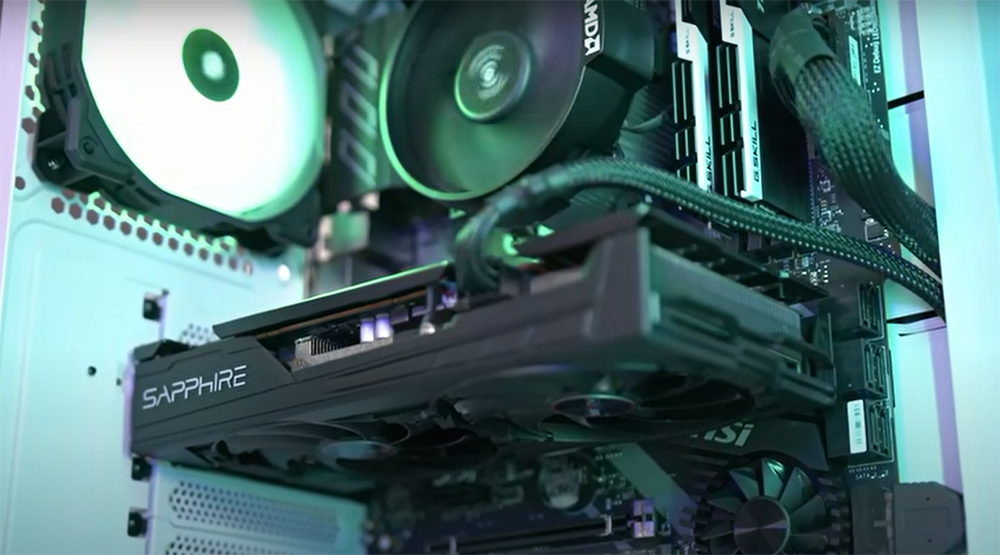
Some gamers build their own PCs, while others buy pre-built systems from companies like Alienware or MSI.
While most people think of gamers when they think of gaming PCs, there’s a growing number of people who use these powerful machines for other purposes. For example, some video editors and graphic designers use gaming PCs because they need the extra processing power to render graphics quickly.
Others use them for tasks that benefit from having multiple monitors, such as stock trading or online poker. [1]
Types of Gaming PCs
There are plenty of factors that affect the overall weight of a gaming PC. But first, let’s take a look at two different types of gaming PCs: low-end and high-end gaming PCs.
Low-end gaming PCs
Low-end gaming PCs can cost as little as $700, but they’re not going to give you the best gaming experience. These systems will be able to handle most games, but you may have to lower the settings to get a smooth framerate.
Low-end gaming PCs typically weigh less than high-end machines. These systems usually have lower-end components, which means they’re not as powerful as their more expensive counterparts.
High-end PCs
High-end gaming PCs can cost upwards of $2000, and they offer the best gaming experience money can buy. These machines have the latest and greatest components, so they can handle even the most demanding games.
In general, though, you can expect a high-end gaming PC to weigh between 40 and 50 pounds. Again, it really depends on the specific machine.
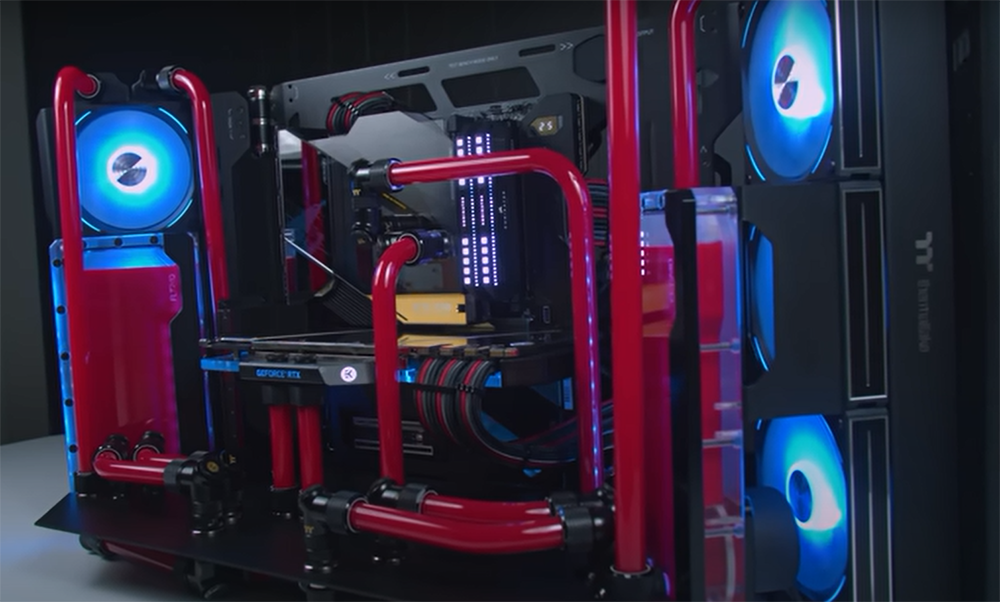
Now that we’ve looked at how much gaming PCs typically weigh, let’s talk about why their weight can vary so much from one system to another. After all, there are only so many components in a PC…right? [2], [3], [4]
What Affects the Weight of Your PC
There are a few different factors that can affect the weight of your gaming PC. Let’s take a look at each one in turn.
PC case size
There are several types of PC cases on the market. Full tower case is the biggest case you can get, and it’s designed to accommodate all types of gaming PCs. Full tower cases are usually very heavy, so if you’re looking for a light-weight PC, this isn’t the best option.
These cases often weigh the most, reaching even 30 pounds so if you’re planning on moving your PC around often, or if you just don’t want to deal with a lot of weight, then a full tower case isn’t ideal.
However, full tower cases offer the most space for components and cooling, so if performance is your top priority, this is the way to go.
Next up are mid-tower cases. These are smaller than full tower cases, but they still offer plenty of space for most gaming PCs. Mid-tower cases typically weigh between 15 and 25 pounds.
This is a good option if you want a balance between weight and performance. And, if you’re looking to save some money, mid-tower cases are often more affordable than full tower cases.
Finally, we have mini-ITX cases. These are the smaller type of PC case, and they’re designed for compact gaming PCs. Mini-ITX cases usually weigh between five and 15 pounds.
The size of your case also affects how many internal components you can have. For example, a large full-tower case can fit multiple graphics cards, while a smaller mid-tower case might only be able to fit one.
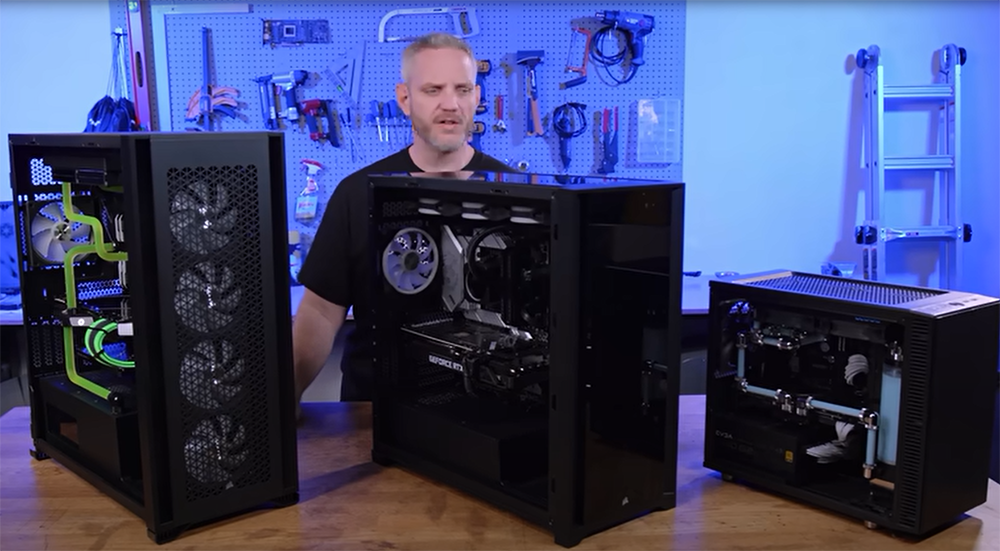
So, if you’re looking to build a powerful gaming PC, you’ll likely need a larger case to accommodate all the components. However, keep in mind that a larger case will add more weight to your system.
Motherboard and other components
Now that we’ve looked at the different types of PC cases, let’s talk about the components inside your gaming PC. The type and number of components you have will affect the weight of your PC. For example, a gaming PC with a high-end graphics card will be heavier than a similar PC with a mid-range graphics card.
The motherboard is the main circuit board in your PC, and it’s where all the other components connect to. The size of the motherboard can vary, but it generally falls into one of three categories: ATX, microATX, or mini-ITX.
ATX motherboards are the largest and most common type. They typically weigh around two pounds and offer incredible expandability. MicroATX boards are smaller than ATX boards and usually weigh less. MicroATX is a perfectly fine choice for a beginner who wants a functional yet compact motherboard. Mini-ITX boards on other hand are the smallest type of motherboard, so they will weigh a pound or so. Yet they lack in functionality, as they have to give up a lot of slots in exchange for their compact size, including extra RAM slots!
As you can see, the weight of your motherboard can vary depending on its size. But keep in mind that the weight of your motherboard will also depend on the materials it’s made from and the number of components it has. For example, a board with built-in Wi-Fi or Bluetooth will usually weigh more than a board without these features.
Finally, we have the power supply. Power supplies come in a variety of sizes and weights. A larger watt power supply will obviously weigh more.
Presence of multiple GPUs
Another factor that can affect the weight of your gaming PC is the presence of multiple GPUs. If you’re looking to build a powerful gaming machine, you might need more than one graphics card. This is usually an option if you plan on using several monitors or if you want to play games at very high resolutions.
Graphics cards typically weigh around one pound minimum. So, if you have two graphics cards in your system, that’s at least an extra two pounds of weight.
Presence of multiple hard drivers
The final factor we’re going to look at is the presence of multiple hard drives. If you have a lot of data that you need to store, you might need more than one drive. For example, if you plan on storing a lot of movies or games, you might need an external hard drive in addition to the internal drive in your PC.
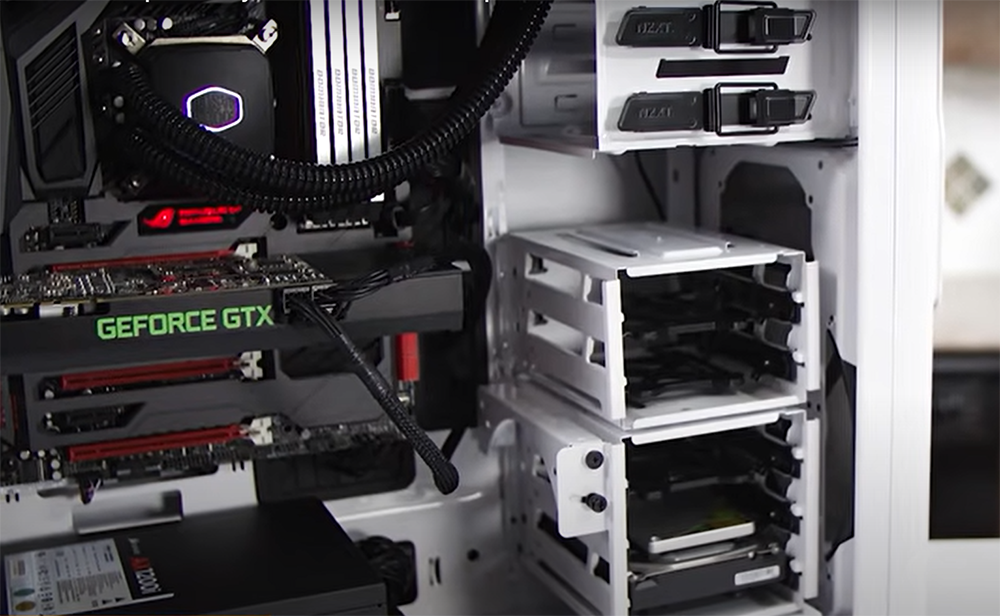
There are two types of hard drives, SSD and HDD. A regular hard drive typically weighs around one pound. An SSD drive generally weighs less than this, around 0.1-3 pounds. So keep this factor in mind, especially if you plan on expanding the memory in future.
More complex cooling system
Compared to the general purpose computers, gaming PCs often come with more complex cooling systems. This is because the powerful components in a gaming PC tend to generate a lot of heat.
A more complex cooling system usually means more fans, which can add to the weight of your system. Additionally, some high-end cases come with built-in water-cooling systems. These can add even more weight to your PC.
As you can see, there are a few different factors that can affect the weight of your gaming PC. The size of the case, the number of internal components, and the presence of multiple GPUs or hard drives can all add to the overall weight of your system.
Now that we’ve looked at some of the factors that affect a gaming PC’s weight, let’s answer some common questions about the topic. [3], [4], [5], [6], [7], [8]
FAQ
What is the average weight of a PC?
The average weight of a PC is around 30 pounds.
However, the weight of your gaming PC will vary depending on the size and components inside your system. For example, a large gaming PC with multiple graphics cards can weigh upwards of 50 pounds. Conversely, a smaller form factor or mini ITX build may only weigh 15-20 pounds.
It’s also worth noting that the weight of your case will play a role in how much your entire system weighs. A heavier full tower case made of metal is going to add quite a bit of heft to your rig, whereas a lighter plastic or wood case will keep things on the lighter side.
How heavy are motherboards?
The weight of a motherboard can vary greatly depending on the size and materials used. Generally, ATX motherboards weigh around two pounds, while mini-ITX boards may be half that weight.
Why are PC cases so heavy?
Most PC cases are made out of steel, which is a very sturdy and durable material. However, this also makes them quite heavy, which can be a downside if you’re looking to move your PC around frequently.
One thing to keep in mind is that the weight of your case will also depend on the size. A smaller case will obviously weigh less than a larger one.
Another factor that can affect the weight of your case is whether or not it includes any extra features such as RGB lighting or tempered glass panels. These added features can make your case significantly heavier.
Useful Video: How Much Does a Gaming PC Weigh
Conclusion
So, how much does a gaming PC weigh? It really depends on the type of machine you build, as well as the number and size of components inside. A gaming PC with multiple hard drives, multiple graphics cards, and water cooling will weigh more than a similar system with just one hard drive and a single graphics card. Generally speaking, low-end gaming machines will weigh less than high-end ones – but they can still range from around 20 pounds to over 50! If you’re curious about the weight of your particular machine, do some research online, do your own calculations or consult with an expert to find out more.
References:
- https://www.pcmag.com/encyclopedia/term/gaming-pc
- https://computerinfobits.com/how-to-know-if-my-pc-is-low-end-or-high-end/
- https://productank.com/how-much-does-a-gaming-pc-weigh/
- https://www.playonbudget.com/how-much-do-your-pc-and-components-weigh/
- https://digitalworld839.com/types-of-computer-cases-and-their-sizes/
- https://www.howtogeek.com/440175/motherboards-explained-what-is-atx-microatx-and-mini-itx/
- https://www.pcgamer.com/how-to-choose-the-right-graphics-card-model/
- https://www.tomshardware.com/features/ssd-vs-hdd-hard-drive-difference

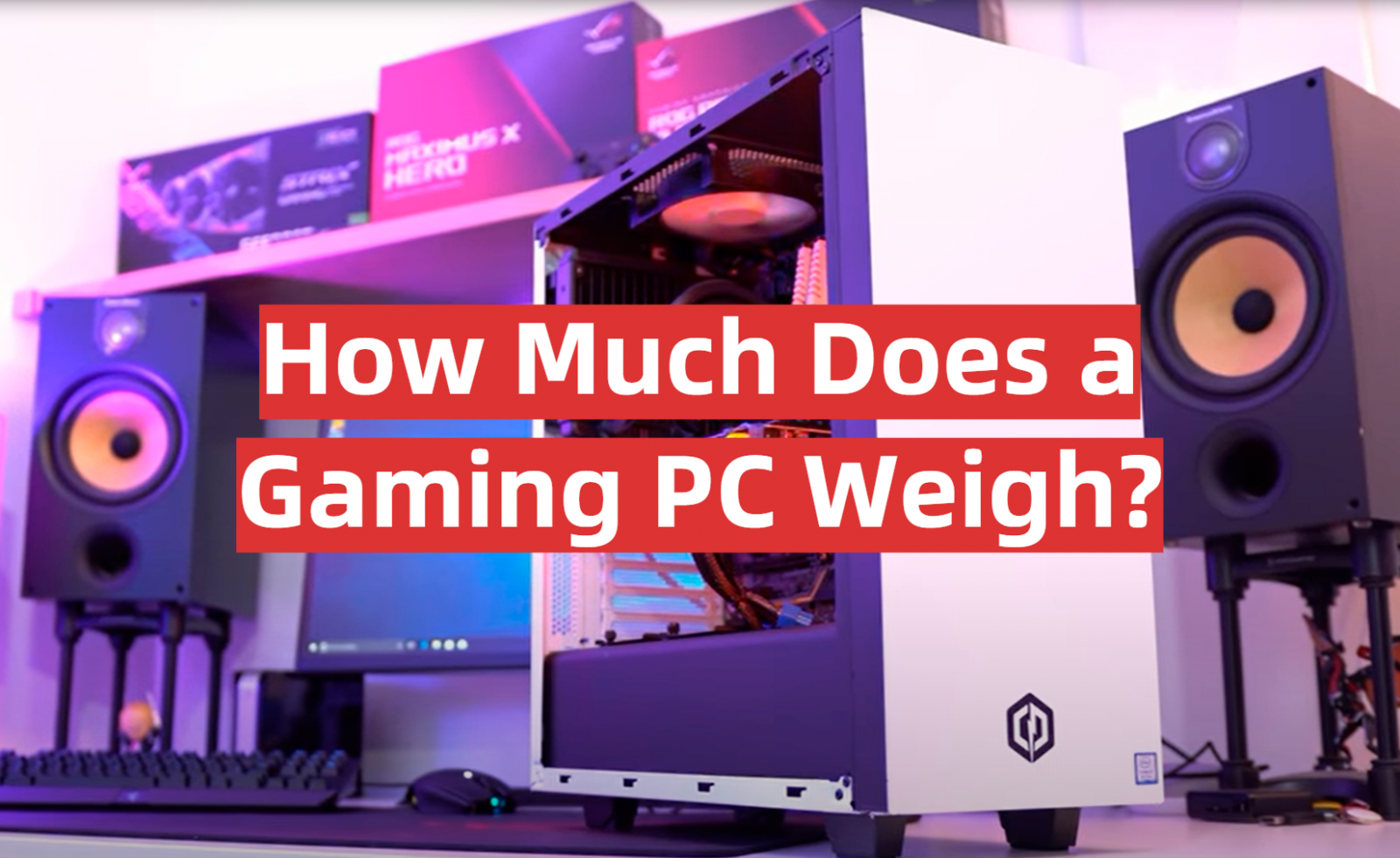





Leave a Reply